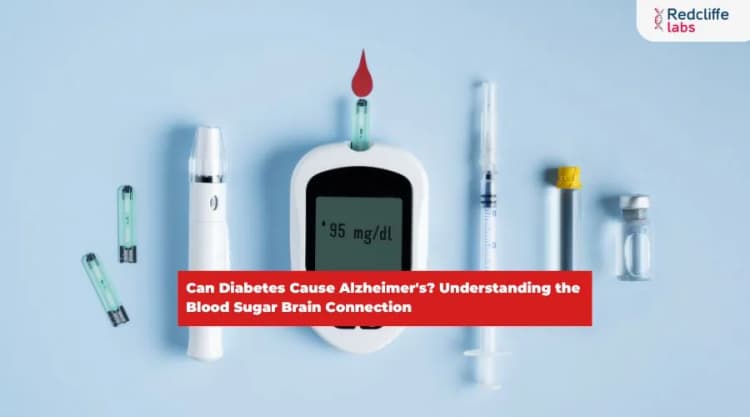Blood
Unlock special
discount on
this package
Login to Unlock 🔓
test Instructions
NABL Accredited lab*

Booking Benefits Unlocked Worth FREE 799

Report Consultation

Diet Plan
*Available once your report is generated.
At Redcliffe Labs, we have a single goal: to give India its right to quality diagnostics.
Customers served
Tests Processed Everyday
Cities
Collection Centres
World Class In-house Labs
Home Collection Experts
1 Test Parameters
Dengue IgG Antibodies, EIA
1 PARAMETER INCLUDED
1 PARAMETER INCLUDED
- Dengue IGG Antibody
Helps you know your test better
Who all are eligible for this test?
- People who are at high risk of dengue fever include the elderly, kids, and pregnant women.
- Dengue fever mostly doesn't show any symptoms, except mild fever with or without rashes.
- Individuals who are in the recovery phase might develop new symptoms which are an indication of severe hemorrhagic fever, including sudden high fever, restlessness, nose bleeding, low B.P and platelet count, abdominal pain, nausea, and vomiting.
Why take this test?
- This test detects the more severe stage of dengue fever and these antibodies (IgG) persist in the body for a longer time and start appearing in the blood within 7 days of infection in a higher number than IgM antibodies.
- The dengue virus IgG antibodies test reveals past and current types of dengue infection and the test result.
What are the benefits of this test?
- The finding of these tests is very helpful in preventing the severe condition of dengue and also gives the data that the person has been infected with dengue fever for the first time or the second time in his/her life span.
- It helps doctors prevent any future fatalities by giving emergency treatment before the dengue fever becomes life-threatening.
Top Booked Health Checkup Packages
Reports in 12 hours
|Parameters 94
Reports in 12 hours
|Parameters 96
Reports in 12 hours
|Parameters 89
Reports in 12 hours
|Parameters 96
Reports in 12 hours
|Parameters 90
Helps you know your test better
Q. What do you mean by IgG?
Q. What is the IgG test?
Q. What is the importance of dengue platelet count?
Q. What happens in case of low platelet count?
Verified by Medical Expert

MEDICALLY REVIEWED BY
Dr. Himani Pandey

WRITTEN BY
Anjali Dubey
Table of Content
Introduction to Dengue IgG Test
Dengue is a health issue that affects some areas and creates years of epidemic. India has seen a sudden rise in dengue cases, making it sixty-three thousand. North India contributes a majority of dengue cases. Dengue is a serious issue that can increase the infertility rate. If you have a fever that lasts for more than three weeks, it can be a sign of dengue fever. Clear the doubt by taking the dengue IgG test.
Doctors recommend taking diagnostic tests from a trusted lab like Redcliffe Labs. Redcliffe Labs is India’s leading diagnostic lab, providing affordable, quality diagnostic tests. We also offer a home sample collection service to make it accessible to every Indian. The dengue IgG test price is INR 600. Take good care of your health by booking the test with us.
Test Details in Brief
| Also known as | Dengue IgG Elisa test, IgG Elisa test for dengue, dengue virus IgG test, dengue virus IgG antibody test, IgG antibody test, anti-dengue virus IgG test |
| Purpose | To check the presence of dengue IgG antibodies in your blood. |
| Preparation | Practice yoga and meditation a day before the test to keep yourself stress-free. |
| Fasting | The test needs no fasting. |
| Gets reports within | 15 Hours |
| Cost | INR 600 |
What is Dengue Fever and What Are Its Types?
A mosquito bite causes dengue fever. Ae. aegypti and albopictus are two major mosquitoes causing dengue. There are four types of dengue virus: DEN-1, DEN-2, DEN-3, and DEN-4. Severe and untreated dengue fever may affect organs like bone marrow and liver.
Dengue IgG and IgM are the two main types of antibodies. Dengue IgM antibodies are acute infections that your doctor can detect between 3 to 7 days.
Dengue IgG antibodies show past exposure to infection. People who have ever been infected with dengue can have dengue IgG antibodies.
In several cases, people have dengue antibodies, including anti-NS1 and anti-E.
What is the Purpose of the Dengue IgG Test?
The dengue IgG test, also known as the immunoglobulin G test, is also popular. It is a screening test to detect dengue IgG antibodies in the blood and screens out primary and secondary dengue infection.
The Centers for Disease Control and Prevention (CDC) reports that dengue fever prevails in 100+ countries. The disease is spreading, where 75% of dengue cases are asymptomatic. A dengue IgG test can help detect these cases early and reduce the overall number of cases.
What is the Dengue IgG Test Used For?
A dengue IgG test checks for the presence of dengue IgG antibodies. However, a doctor can also perform the test on others.
- It can check the reason for body pain, fatigue, nausea, vomiting, and pain behind the eyes. These are also signs of dengue fever.
- It can help diagnose, manage, and treat dengue infection.
- It can determine recent or past dengue infection in the body.
- Your doctor may recommend the dengue IgG test if you have recently traveled to any dengue-endemic area.
- It can check for secondary dengue infection.
- It can determine the post-vaccination response to dengue.
- It can monitor the efficiency of treatment and dengue diagnosis.
What Does The Dengue IgG Test Measure?
The dengue IgG test measures whether you have a present, past, or potential exposure to the dengue virus. Doctors from the test also differentiate between chikungunya and dengue infection. They use two major forms of testing, which are:
- Molecular or Polymerase Chain Reaction (PCR)
- Antibody Test
The Dengue PCR test measures the genetic material of the dengue virus in your blood. The symptoms appear within the first week, which later helps determine the dengue type. CDC says molecular tests can detect dengue fever after 7 days of continuous prevalence of infection. An RT-PCR test can detect and differentiate between dengue, zika, and chikungunya virus.
Antibody tests include dengue IgG and IgM tests. These help diagnose if your blood has dengue IgG or IgM antibodies. The first step in detecting the dengue virus is monitoring the presence of dengue IgM antibodies through the dengue IgM test. IgM antibodies remain in the body for 7 to 10 days. Because dengue IgG antibodies develop slowly, they usually rise after a long presence of antibodies in the body. The dengue IgG test diagnoses current or past exposure to dengue fever.
Symptoms of the Dengue Fever
Dengue fever brings several signs, which range from mild to severe. These symptoms may last from 4 to 10 days. However, some people are asymptomatic (with no symptoms). During dengue fever, you can experience the following signs.
Mild Symptoms:
- Headache
- High fever
- Vomiting
- Nausea
- Rashes
- Muscle and bone pain
- Pain behind the eyes
Severe Symptoms:
- Excessive vomiting
- Severe abdominal pain
- Gum bleeding
- Nose bleeding
- Blood in stools (poop)
- Bloody vomit
- Excessive fatigue or tiredness
- Difficulty in breathing
- Wheezing
- Shortness of breath
- Bleeding under the skin leads to bruises
Why Do You Need The Dengue IgG Test?
If you experience ongoing dengue fever symptoms, you must take the dengue IgG test. Nonetheless, several other signs show the need for a dengue IgG test.
- You need the dengue IgG test to detect the amount of IgG antibodies.
- The test can find the presence of secondary dengue infections.
- If you have a high fever,
- If you have returned from a dengue-affected city.
- If you had a history of dengue fever.
- If your doctor recommends the test after post-dengue recovery.
- The test can help monitor the effectiveness of post-dengue vaccination.
Preparation for The Dengue IgG Test
Dengue IgG antibodies show if your body has ever been infected with dengue. The dengue IgG test requires no special preparations. It is easy to perform and requires just your blood sample to locate the disease. After booking the dengue IgG test from Redcliffe Labs, our phlebotomists will visit your house to collect the sample.
- Fasting: The test needs no fasting. However, consult your doctor with what suits you the best.
- Hydration: A blood test may make your body weak, so it's better to keep your hydration level up to avoid such a condition.
- Practice stress-management techniques. Dengue fever might stress your mind. To avoid stress, practice yoga, deep breathing exercises, and meditation a day before the sample collection.
- Comfortable clothes—They extract blood from the veins, and wearing loose and comfortable clothes can help prevent any hindrance.
- Avoid Consumption of Harmful Substances- Alcohol and tobacco are leading causes of health issues. Consuming them before the day of the dengue IgG test may affect the blood sample collection procedure.
The Procedure for The Dengue IgG Test
You can book the dengue IgG test from the Redcliffe Labs website or mobile app. We provide the dengue IgG test price at INR 600 with a home sample collection service, making our services affordable and accessible. If your doctor has suggested the IgG test, book it from Redcliffe Labs.
Our DMLT-certified phlebotomist follows a smooth testing procedure to collect and send blood samples for testing.
- To begin with, they will ask you to sit in a comfortable position for sample collection.
- If you wear a long-sleeve t-shirt, they will ask you to roll it up.
- They will ask you to make a fist so that they can locate an appropriate vein.
- They will apply an adhesive band to make a clear impression and locate a vein.
- They will clean the site with an alcoholic substance to prevent skin infection.
- Once located, they will insert a sterile syringe into the vein to collect blood.
- After collecting the required sample amount, they will transfer it to a test tube or container.
- They will put a cotton ball on the punctured site to prevent blood loss.
- Label the container with your details, like name, collection time, place, and date.
- Transport the collected sample to the lab for testing.
- You will receive your test reports within 15 hours.
Risks Associated With The Dengue IgG Test
The dengue IgG test has no or slight risk. After the test, you might experience:
- Slight pain
- Excessive blood loss
- Bruises
- Hematoma
- Weakness
- Dizziness
- Several punctured sites
Understanding The Dengue IgG Test Results
The Dengue IgG test helps you understand if you ever encountered a dengue infection. The dengue IgG test positive means the dengue IgG is present in your blood, including present or past infection. Our expert lab technicians undergo 50+ internal and external tests to provide accurate results. However, certain factors can affect the dengue IgG test results and bring false positives. These are:
- Testing duration
- Presence of dengue fever
- Age
- Type of dengue fever
- Vaccination history
- Past infection with dengue
- Your immunity
- Test accuracy
Table indicating Dengue IgG Antibodies Testing
| IgG Test Result | Interpretation |
| Positive | Current/ past infection |
| Negative | Current or too soon sample collection. |
| Sample taken between 2-4 weeks | Recent exposure to infection |
Normal range of Dengue IgG Antibody
The normal range of dengue IgG antibodies is 1.64 IV or less for all ages and genders. Any number exceeding the range indicates a positive or the presence of a dengue IgG antibody in the blood.
| Dengue IgG Antibody Range | Interpretation |
| I.64 IV or less | Negative |
| 1.65-2.84 IV | Indeterminate |
| 2.85 IV or more | Positive |
What Are The Benefits of the Dengue IgG Test?
There are many benefits of the dengue IgG test. These are:
- The dengue IgG test helps detect infection early.
- The test can help differentiate between the underlying symptoms and diagnose the right cause of infection.
- Your doctor can plan an effective treatment based on your test reports.
- You can take early preventive measures to reduce the spread of dengue infection.
Is There A Need For Follow-up?
The dengue IgG test is enough to detect IgG antibodies in your blood. Despite that, some factors may lead to false positive test reports. Your doctor can recommend certain other tests to monitor your health. These tests provide help with apparent doubts and provide results and treatment accordingly.
What Other Tests Can Your Doctor Recommend?
Your doctor may recommend other tests such as:
- Non-structural protein 1 (NS1) antigen test
- Complete blood count test (CBC)
- Immunoglobulin M test (IgM test)
- Real-time polymerase chain reaction (RT-PCR) test
- Nucleic acid amplification tests (NAATs)
Dengue IgG Test Cost @ Redcliffe Labs
Redcliffe Labs is a renowned diagnostic lab. Quality diagnostics are the right of every citizen. We offer 3600+ tests at an affordable and reasonable price. Our dengue IgG test price is INR 600, and our phlebotomist will visit your home to collect blood samples. Our lab technicians analyze IgG antibodies against dengue infection, which helps monitor and diagnose the underlying infection.

Dengue IGG Test Price in Different Cities
| City Name | Discounted Price |
| Delhi | ₹600 |
| Noida | ₹600 |
| Mumbai | ₹600 |
| Bangalore | ₹600 |
| Kolkata | ₹600 |
| Pune | ₹600 |
| Lucknow | ₹600 |
| Ahmedabad | ₹600 |
| Hyderabad | ₹600 |
| Chennai | ₹600 |
| Gurgaon | ₹600 |
| Jaipur | ₹600 |
| Faridabad | ₹600 |
| Indore | ₹600 |
| Patna | ₹600 |
Note: We also offer Dengue IGG Antibody Test PAN India. Please call the number 8988988787 to check the availability of our services in your area.
Book The Dengue IgG Test and Take Care of Your Health
The dengue IgG test helps analyze the presence of IgG antibodies in your blood. It is important that you, too, understand the importance and results of the dengue IgG test. With proper testing and results, you can effectively care for yourself and the surrounding people.
Dengue fever can spread from one to another, so taking the dengue IgG test is important to monitor if you have or have ever had a dengue infection. Book the dengue IgG test from Redcliffe Labs and care for your health. With early detection, timely diagnosis, and proper management, you can prevent and deal with its severe complications effectively.
5 Simple Steps to Manage Your Health with Redcliffe Labs
Quick, Simple & Convenient; trusted care delivered to your doorstep.

Start Your Online Booking
Open the Redcliffe Labs website/app. Select the test or package and enter your details. Schedule the service for your preferred slot.

Live Tracking
Stay updated with real-time tracking for a smooth and timely home sample collection.

Sample Collection
Our certified experts ensure a smooth, hygienic, and fully compliant sample collection experience.

Doctor-Verified Smart Reports
Every report is clinically checked by expert doctors and shared with smart, actionable insights.

Your Health Journey Continues Post Reports
Consult with our expert medical team to get actionable insights to improve your health.
Nearby Labs(9)
Redcliffe Labs Noida

MC-5280
Redcliffe Collection Center
Redcliffe Collection Center
Redcliffe Collection Center
Redcliffe Collection Center
Redcliffe Collection Center
Redcliffe Collection Center
Redcliffe Collection Center
Redcliffe Collection Center
Frequently Asked Questions
What is a Dengue IgG antibody test, and why is it done?
How is the Dengue IgG test different from the IgM test?
What does a positive Dengue IgG result mean?
Can a Dengue IgG antibody test detect a current infection?
What is the normal range for Dengue IgG antibodies?
How long do Dengue IgG antibodies stay in the body?
What should I do if my Dengue IgG test is positive?
How is a Dengue IgG test performed?
Is fasting required before taking a Dengue IgG antibody test?
Can past dengue infections affect future test results?
Can I book a Dengue IGG Antibody Test, EIA near me?
Can I book a home collection for a Dengue IGG Antibody Test, EIA?
Health Articles & Blogs
My Health
Stay informed with our expert health articles and blogs. Explore comprehensive guides on diseases, nutrition, preventive care, and wellness tips to help you make better health decisions.
Can Exercise Really Treat Depression? What Research Says
Discover what research says about exercise and depression. Learn how physical activity may improve mood, reduce symptoms, and support mental health.

Is It Good to Eat Dried Cranberries Every Day? Benefits & Risks
Discover the health benefits and potential risks of eating dried cranberries every day, including sugar levels and portion tips.

7 Health Screenings Every Woman Above 30 Should Get Done Annually

Fat vs Muscle: Are they Different?

Can Managing High Blood Pressure Lower Uterine Fibroid Risk?

Debunking Epilepsy Myths: What Everyone Should Know

Can Diabetes Cause Alzheimer's? Understanding the Blood Sugar Brain Connection
Explore the link between diabetes and Alzheimer’s disease. Learn how high blood sugar may affect brain health, memory, and long-term cognitive function.

Pimples on Scalp: Causes, Treatments, and Prevention Tips
Explore My Health
